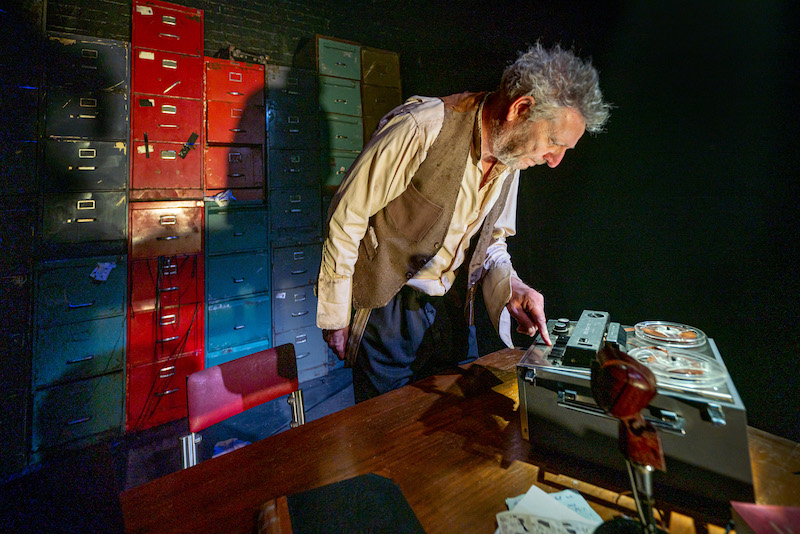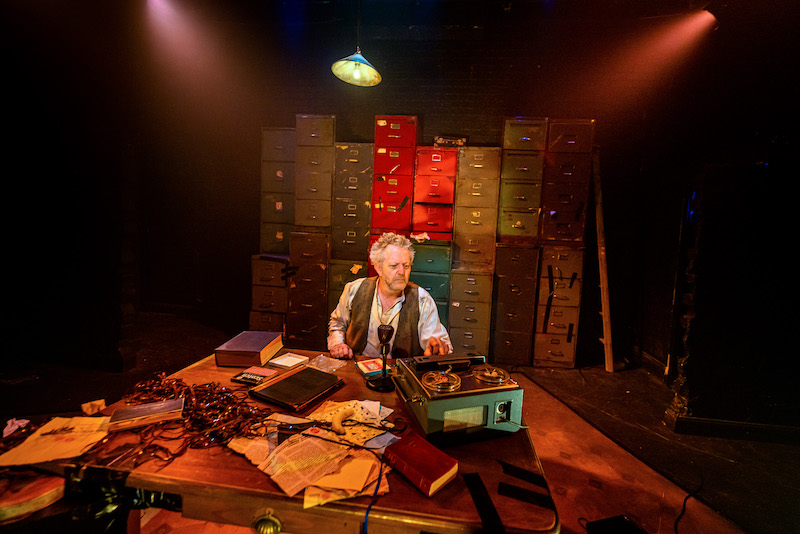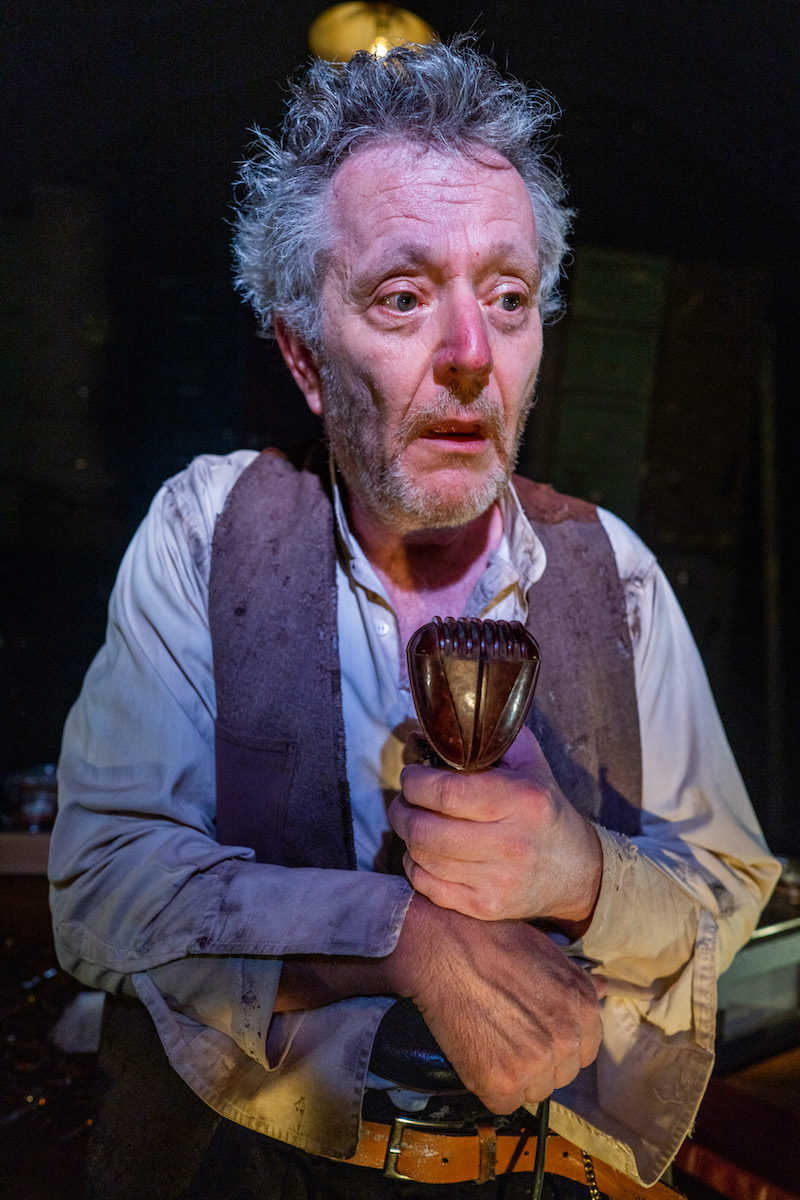A clock ticks loudly. A decrepit old man in scruffy clothes shuffles his way onto stage. He slowly moves a ladder into place and clambers up to unlock a drawer in a wall of filing cabinets, emerging with a banana, which he happily consumes.
Sitting at his desk, with its reel-to-reel tape recorder, he consults a log book, finds the tape he’s looking for (tape 5 from box 3) and starts to listen. Today is his 69th birthday and as is his wont, he listens back to a tape from the past, and records another. This time the old tape was one he made in an empty wine house on his 39th birthday, in which he also reflects on himself in his confident twenties. Thus, recollections lead to other recollections, as the past rewinds.
 Jonathan Biggins. Photograph © John Marmaras
Jonathan Biggins. Photograph © John Marmaras
Samuel Beckett wrote Krapp’s Last Tape for Irish actor Patrick Magee, though it is considered one of his most autobiographical pieces. It premiered in 1958, when reel-to-reel tape recorders were relatively new, with Beckett setting it “in the future”. Nowadays, of course, memories are ubiquitous thanks to social media.
Running just 50 minutes, Krapp’s Last Tape says so much – without labouring anything or feeling remotely didactic – about the passing of time, missed opportunities, lost love, loneliness, memory and mortality.
Former vows to curtail his drinking and banana eating have clearly come to nought – and with a banana comes a banana skin, of course. (Beckett loved vaudeville and slapstick). As he listens to the tape, we hear about his mother dying, the neighbour who used to sing when he was a boy, and the way he ended a romantic relationship with a young woman as they lay in a punt, the water moving them around gently. He fast forwards through some sections, as if he can’t bear to hear it again, but returns to the scene in the punt to listen to more of it.
 Jonathan Biggins. Photograph © John Marmaras
Jonathan Biggins. Photograph © John Marmaras
Many famous actors have played the role, among them John Hurt, Albert Finney, renowned Beckett actor Barry McGovern, Robert Wilson and Max Gillies. Now Jonathan Biggins takes on the role in a production directed by Gale Edwards for Red Line Productions at The Old Fitz Theatre – a tiny venue that suits the miniature play.
Edwards directs in meticulous fashion on Brian Thomson’s evocative, fetching set with its back wall of different coloured filing cabinets, and huge desk. Veronique Benett’s shadowy lighting evokes the idea of time past, and death hovering.
 Jonathan Biggins. Photograph © John Marmaras
Jonathan Biggins. Photograph © John Marmaras
Biggins gives a wonderfully understated yet eloquent performance. With his tall frame bent as if the life has been slowly sucked from him, his grey hair sticking every which way, his nose slightly reddened from too much wine, and his clothes almost falling apart (costumes by Olivia Rowlands) he draws us into Krapp’s rambling thoughts and mood swings – disparagement of his younger selves, regret at choices made, frustration, despondency and occasional amusement.
He sweeps everything from the desk in anger at one point, but mostly he is contained and resigned, having traded happiness to focus on writing. For what? Without overtly pulling at any emotional strings, the play is ineffably sad. As the lights fade at the end, Krapp sits alone, as he presumably will do until death claims him.
Krapp’s Last Tape plays at The Old Fitz Theatre, Woolloomooloo, Sydney until December 14











Comments
Log in to join the conversation.